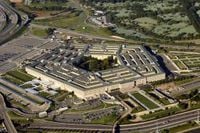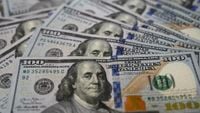The United States is currently enduring one of the longest government shutdowns in its history, with the impasse stretching into its 25th day as of October 25, 2025. The stalemate, which began on October 1 after Congress failed to pass a funding bill—primarily due to disagreements over subsidies for the Affordable Care Act—has left millions of federal workers in limbo. According to Arkansas Online and The New York Times, over a million government employees are either furloughed or working without pay, and the effects are rippling far beyond government offices.
Perhaps no group has felt the impact more acutely than the nation’s 1.32 million military service members. Traditionally, their pay is secured through congressional appropriations, but with lawmakers gridlocked, the Trump administration was forced to take extraordinary measures. In mid-October, President Donald Trump authorized the shifting of $8 billion from military research and development funds to temporarily cover military payroll, as reported by The Associated Press. But as the next payday loomed on October 31, uncertainty hung over whether the administration could repeat this maneuver.
It was against this backdrop that an unprecedented, and highly controversial, donation arrived. On October 24, President Trump revealed that an anonymous “friend” had donated a staggering $130 million to the Pentagon to help pay military salaries and benefits. “That’s what I call a patriot,” Trump said during a White House event, describing the donor as “a friend of mine” and “a great American citizen who loves the military and loves the country.” Trump added, “He prefers that his name not be mentioned, which is pretty unusual in the world I come from, and in the world of politics, you want your name mentioned.”
For a brief moment, the donor’s identity remained a mystery. The Pentagon confirmed receipt of the donation, stating it was accepted under their “general gift acceptance authority.” The money, according to Pentagon spokesperson Sean Parnell, was accepted “on the condition that it be used to offset the cost of Service members’ salaries and benefits.”
However, the intrigue didn’t last long. The New York Times soon identified the donor as Timothy Mellon, a member of the storied Mellon banking family and the grandson of former Treasury Secretary Andrew Mellon. Mellon, who lives a private life in Pittsburgh, Pennsylvania, has long avoided the public spotlight despite his considerable wealth and political activism. Forbes estimates his net worth at around $1 billion, though Mellon himself has denied billionaire status, writing in a 2024 email, “Billionaire NOT! … Never have been, never will be,” as reported by CNBC.
While Mellon’s donation provided an immediate, if modest, lifeline for troops—roughly $100 per service member, according to Arkansas Online—it was just a drop in the bucket compared to the billions needed for full military payroll. The Trump administration had already told Congress it used $6.5 billion to make the last payroll, and it remained unclear if similar funding shifts could be repeated for the next round of paychecks.
The Pentagon’s acceptance of such a substantial private donation is virtually unheard of and has sparked a firestorm of ethical and legal questions. Pentagon policy requires that gifts exceeding $10,000 undergo a thorough ethics review, especially to ensure the donor isn’t involved in any claims, procurement actions, or litigation with the Department of Defense. As AP noted, these procedures are typically reserved for gifts to specific projects like schools or hospitals—not for covering personnel salaries.
Senator Chris Coons of Delaware, the top Democrat on the Senate’s defense appropriations subcommittee, expressed deep concern: “Using anonymous donations to fund our military raises troubling questions of whether our own troops are at risk of literally being bought and paid for by foreign powers.” Max Stier, president and CEO of the Partnership for Public Service, echoed these worries, telling AP, “It’s treating the payment of our uniformed services as if someone’s picking up your bar tab.” He called for greater transparency and questioned the legality of the donation.
Indeed, legal experts have pointed to the Appropriations Clause in the U.S. Constitution, which requires that all federal funds be allocated by Congress. According to Cornell Law School, any such donation must be deposited into the Treasury and then appropriated by Congress—a process that could potentially run afoul of the Antideficiency Act, which restricts agencies from spending beyond congressionally appropriated funds. As Benzinga reported, this has sparked a lively debate about whether the Pentagon’s acceptance of Mellon’s gift is truly above board.
For President Trump and his allies, the donation is evidence of strong private support for the military and his administration. Trump has repeatedly praised Mellon as a “wonderful man” who “doesn’t want publicity,” framing the act as a gesture of patriotism and solidarity. Yet, critics argue that relying on billionaire philanthropy to pay soldiers is a dangerous precedent, blurring the line between public service and private influence. Some worry this could open the door to undue influence or conflicts of interest, especially given Mellon’s status as a major Trump supporter and past donor to groups backing Trump’s campaigns.
Meanwhile, the shutdown’s effects extend far beyond the military. Most civilian federal employees remain unpaid or furloughed, straining families and local economies. Programs that serve vulnerable populations, such as food aid, are under threat as administrative staff are unable to process benefits. According to Arkansas Online, the longer the shutdown drags on, the greater the risk to critical social services—especially for low-income families and children.
As the shutdown grinds on, the extraordinary donation by Timothy Mellon has become a flashpoint in a broader debate about the role of private wealth in public governance. While the $130 million gift offers immediate relief for military families, it also exposes deep fractures in America’s political and funding systems. The ethical dilemmas and legal questions raised by this episode are likely to linger long after the government reopens, forcing lawmakers and citizens alike to reckon with the boundaries between patriotism, philanthropy, and public accountability.
In a time of unprecedented government dysfunction, Mellon’s donation stands as both a symbol of generosity and a warning sign—reminding the nation that, sometimes, the solutions to public crises can raise as many questions as they answer.

